
Sappho – the famous ancient Greek poetess, a representative of the melic lyric poetry, contemporary of Alkey, a native of the lesbian city of Eres; lived at the end of the VII and the first half of the Vl in. BC. In Russian literature, there is often another variant of the name – Sappho.
Due to political unrest that led to the overthrow of the aristocracy, Sappho, as belonging to a noble family, was to move to Sicily; only about 580, after the restoration of the power of the aristocracy, she returned to Lesbos. To this era is the story of her love with Alkey. Later, she married a rich Andrius Kerkilas, from whom she had a daughter Claydu. Her permanent residence was the lesbian city of Mytilene. Among the mysterious episodes of her life is the love of the young man Fahon, who refused poetess in reciprocity, so she threw herself into the sea from the Lefkada rock. In ancient times, there were many other legends about the relationship of the poetess to her friends and chosen ones.
The beginning of these legends was laid by the representatives of the Attic comedy, who, not understanding the meaning of Sappho’s poetry and relating to the cultural development of the Aeolian woman of the beginning of the 6th century from the point of view of the Athenian reality that they currently had, misinterpreted certain hints of Sappho’s way of life. The source of the legend of the Fauna was probably the folk song about Adonis-Faone, the favorite of Aphrodite, whose cult was common in the southern part of Asia Minor and on the islands adjacent to the Asia Minor.
The legend of the Lefkada Rock stands in connection with the ritual relating to the cult of Apollo: on the Lefkada rock there was the temple of Apollo, from where every year, on a certain day, the criminals were toppled into the sea as expiatory victims. The expression of rushing from the Lefkada rock became, in everyday language, equivalent to the expression of ending a suicide and also meant the threat of putting your hands under the influence of despair. In this sense the Lefkada cliff is mentioned, for example, in Anakreont.
 Sappho and Faon by Jacques Louis David
Sappho and Faon by Jacques Louis David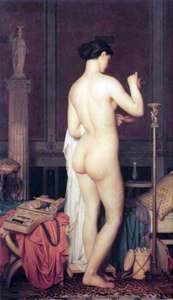 Soirée Sappho Taulet – Charles Glier
Soirée Sappho Taulet – Charles Glier Bathing by Charles Glir
Bathing by Charles Glir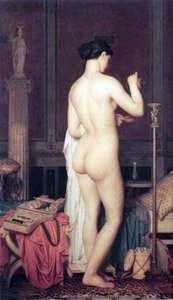 Safo Taulet de noche – Charles Glyr
Safo Taulet de noche – Charles Glyr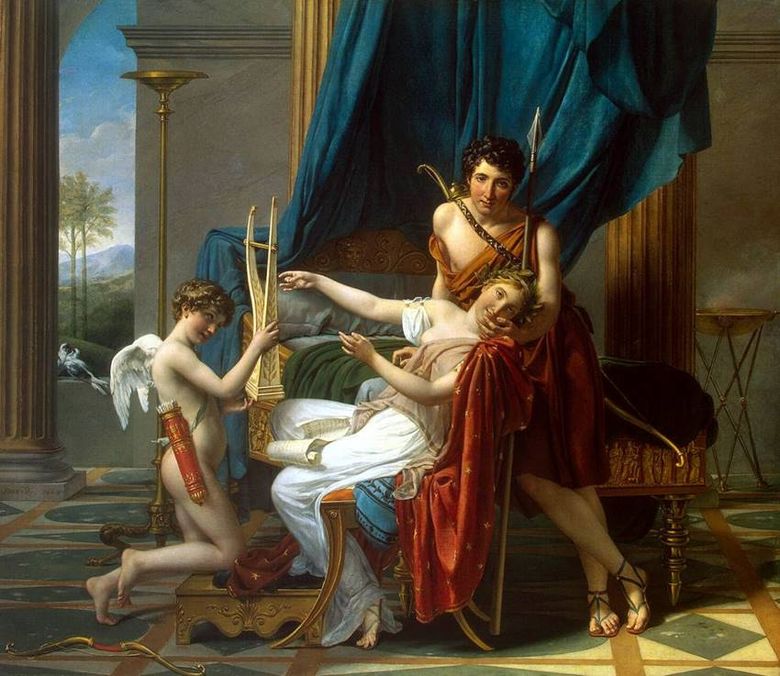 Sappho et Faon – Jacques Louis David
Sappho et Faon – Jacques Louis David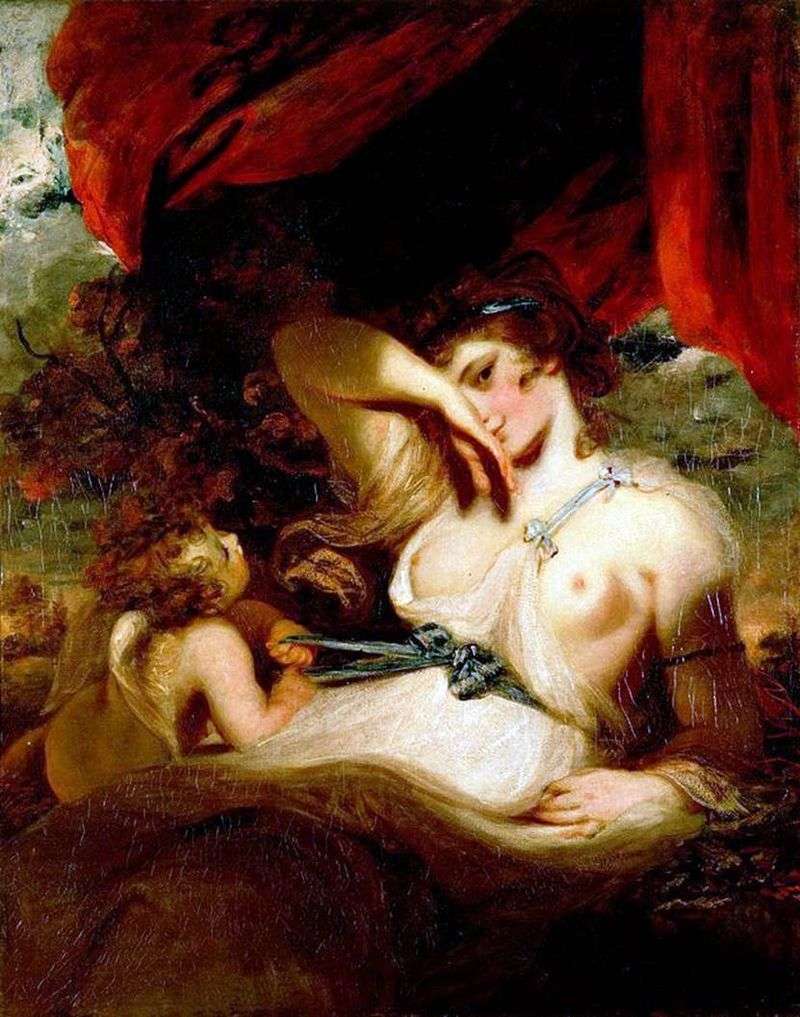 Cupid unleashes the belt of Venus by Reynolds Joshua
Cupid unleashes the belt of Venus by Reynolds Joshua Abduction of Proserpine by Hans von Aachen
Abduction of Proserpine by Hans von Aachen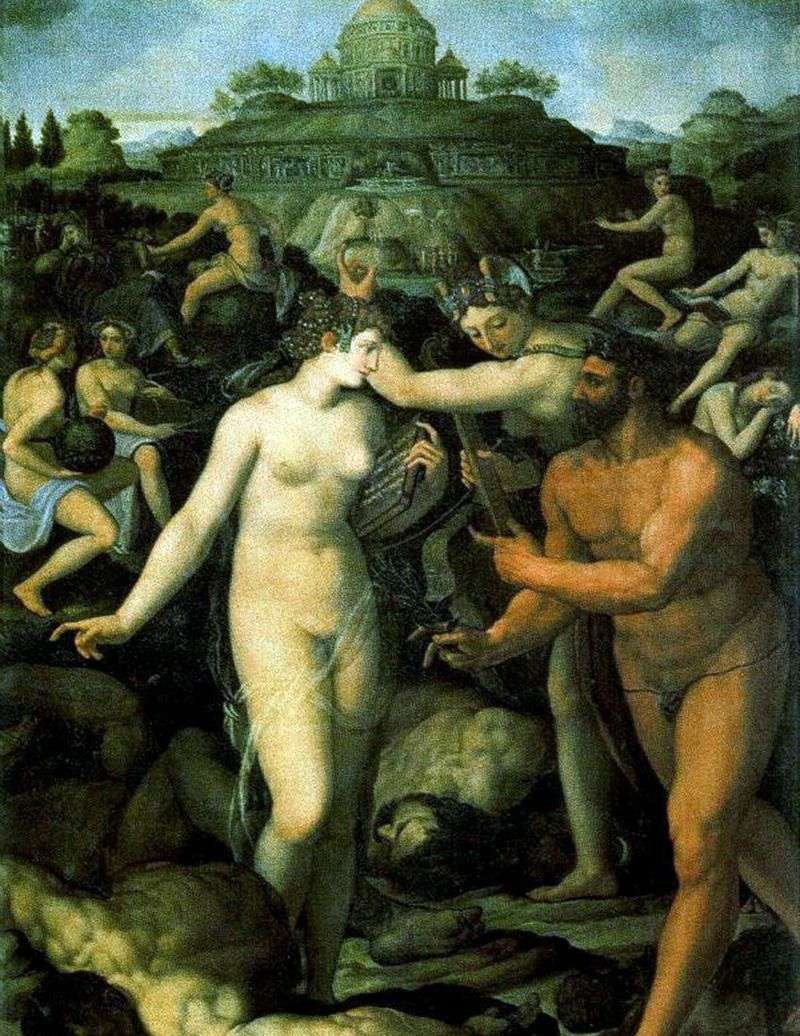 Hercules and the Muses by Alessandro Allori
Hercules and the Muses by Alessandro Allori